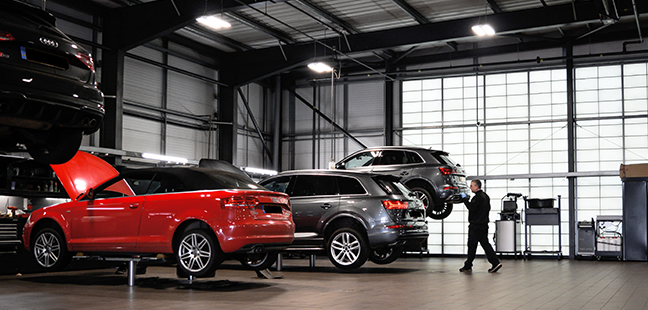A used car warranty can provide peace of mind to buyers, looking to get a new vehicle through the used car market. However, before you buy a warranty for your car, there are some important things that you need to know. Used car warranties can cover or contribute towards the cost of a repair if your vehicle develops a problem. But is buying a used car warranty worth it? In this blog post, we will discuss the pros and cons of used car warranties and what factors you need to consider.

What is a Used Car Warranty?
A used car warranty is a contractual agreement between the buyer and seller of a vehicle, outlining the terms and conditions under which the seller agrees to repair or replace certain parts within a certain timeframe.
These warranties can be provided by a manufacturer, dealership, or third-party providers. These contracts typically cover issues involving the engine, structural integrity, and electrical components. Before signing any agreement, check what any potential warranty will cover and for how long.
The great thing about warranties is that they are far more enforceable than a simple “guarantee” and they tend to last longer. So if you have a warranty in place for a vehicle you have purchased, you really can enjoy peace of mind whilst making the most of all the fun of driving. So a warranty is not something you would usually expect to get for free.
What are the Four Types of Used Car Warranty?
There are four different types of used car warranty that can provide financial protection to the buyers. These different types are dealer warranty, approved-used warranty, manufacturer warranty, and third-party warranty. Check the details of the agreement before agreeing to anything.
If you purchase a used car from an independent dealership, then you could have the option to take out a dealer warranty.
An approved-used warranty is a comprehensive agreement that is provided through the manufacturer's own scheme for selling used models.
The difference with a manufacturer warranty is that it is provided when you purchase a newer used car that still has time left on its original agreement when the car was first purchased.
A third-party warranty, like the one offered by breakdown cover operators, is an independent offer provided by a company outside of a dealership or manufacturer.
Pros of Used Car Warranties
There are several advantages to buying a used car warranty. Besides the obvious benefit of the option to potentially save money on repairs, there are other important things to consider. Used cars are a great option for potential buyers, but having the peace of mind that your vehicle is covered by a warranty can reduce stress and anxiety related to potential car breakdowns or needing to visit a local garage.
Some warranties also include benefits that cover expensive repairs such as those that cause breakdowns – flat tyres, dead batteries, and even running out of fuel. Additionally, owning a vehicle comes with a few challenges – one of them being a few unexpected issues that can cost a lot to fix.
With a warranty, you have a clear idea of what's covered and how much you'll be responsible for when a repair is needed. This can help you budget for maintenance and repairs more effectively. Finally, if you do need to carry out repairs, you know it will be at a highly reputable garage, using genuine parts, as the vehicle will need to be serviced in line with the agreement.

Cons of Used Car Warranties
Even though used car warranties offer several benefits for drivers looking to get themselves a new vehicle, these contractual agreements also have some potential challenges. First of all, despite warranties providing a safety measure for being covered for any costs of repairs, they can be expensive and add to the overall cost of purchasing a vehicle. Therefore, buyers need to consider whether the cost of the warranty is worth paying for. Additionally, some expensive repairs may not be included in the agreement, and some may exclude wear-and-tear items and any other pre-existing conditions.